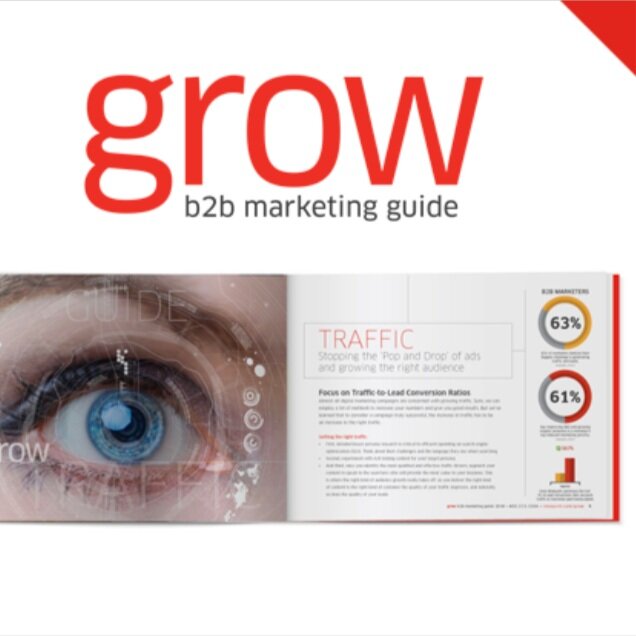 Many of today's marketing strategies focus on personalizing attention to prospects and creating a customized experience for everyone who interacts with your digital assets. These tailored connections are accomplished by gathering lots of data and segmenting audiences based on needs and stages of the buyer's journey.
Many of today's marketing strategies focus on personalizing attention to prospects and creating a customized experience for everyone who interacts with your digital assets. These tailored connections are accomplished by gathering lots of data and segmenting audiences based on needs and stages of the buyer's journey.
B2B account-based marketing perfects this idea by creating audience segments that consist of a single target.
What is B2B Account Based Marketing?
Account-based marketing (ABM) treats each prospect as if they were a market of their own. While this approach might not make sense for companies with thousands of opportunities, it's perfect for enterprise-level sales in the B2B space. It's also the right choice for companies who are seeking a few large anchor accounts and want to supplement the rest with traditional inbound leads.
ABM focuses on engagement with the organization, rather than with just one contact. B2B marketing often requires you to interact with several stakeholders within a company before you can close a deal.
With ABM, you identify a target company, and then do research to determine who critical contacts are, what the company culture is, and how your solutions will fit. From there, you build a strategy and create content just for this prospect company, keeping individual contacts in mind while still targeting the entire organization.
Kissmetrics describes it as the sniper's way of marketing: precise, targeted and accurate.
Why B2B Tech Companies Should Consider ABM
One of the main reasons for choosing B2B account-based marketing is that tech companies often have a limited number of prospects available. Unlike some B2B companies with thousands of options, or consumer-facing businesses with millions of options, focusing on a finite consumer base requires a bit more finesse.
Here are a few more reasons to consider account-based marketing:
- Straightforward ROI. First, when you're pursuing one lead, measuring your return on investment is simpler. Plus, you're likely to be happy with that number: 85 percent of marketers said ABM delivers a higher ROI than other approaches.
- Optimized Resources. When you're not focusing your efforts on a broader market, you can dedicate your resources only to those who show promise from the start. That means your risk is reduced along with unnecessary resources spent on casting a wide net.
- Your Clients Will Like It. Account-based marketing still relies on the fundamentals of inbound marketing — avoiding the hard sell until the timing is right — while still showing that you've done your homework. For your clients, this is the perfect balance of personalized attention and self-directed research.
- Aligning With Sales is Easier. No matter which method of marketing you employ, when sales and marketing work together, the results will always be better. Marketers using ABM work alongside sales to keep strategies and initiatives aligned. The result is greater strength within both departments.
Plus, B2B account-based marketing works. As always, the proof is in the pudding. Here are just a few numbers to back up that claim:
- According to one survey, 97 percent of marketers reported ABM had a higher ROI than other marketing activities.
- The number of people involved in a major B2B tech purchase has gone up from 5 to 7 people. ABM allows you to incorporate each critical contact in a personalized way while still pursuing the company as a whole.
- Almost 85 percent of marketers said ABM helped them retain and expand existing relationships significantly.
What's Old is New Again
The designation of B2B account-based marketing as an individual tactic has only been around for a few years. However, the concepts behind it are a tribute to the tried-and-true method of making connections, building relationships and courting promising leads with individual attention. What's new is applying modern technology to make the process efficient, and using inbound methodology to put the customer in the driver's seat.
The result is greater marketing success for B2B tech companies that rely on landing big accounts to stay afloat.![]()







 By
By 
